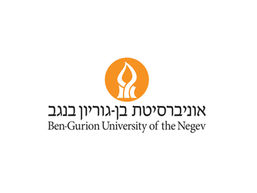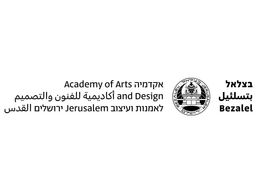During the last decade, the academic arena in Israel has become a shared space of great social importance. Thousands of men and women each year enter the gates of a campus in Israel. For many of them, the campus is where they experience their first real encounter with social groups other than their own. The relations between students from different groups – Arabs, ultra-Orthodox, Israelis of Ethiopian origin, secular or traditional people, and so on – form an immensely important social opportunity, placing the campus as a key arena for promoting and improving relations between different groups in Israel.
Because the student population frequently changes, the academia department works with administrators, faculty and staff who meet with students year after year and shape the experience of intergroup encounter on campus. Our work is targeted to influence the various campus populations, including academic staff, administrative staff, security personnel and university management, as well as organizational structures.

Academia
The academia department works in three channels:
First, developing research-based practices that promote inclusion and improve intergroup relations, and making these practices accessible through specialized guides for academic staff, for administrative staff, for security personnel and for management.
Second, developing an organizational system that reviews the application of these practices throughout campus in a frequent and ongoing manner, encourages them and provides incentives for their implementation.
Finally, implementation is accompanied by impact measurement and field research, in order to develop detailed and in-depth understanding of the various factors that promote or impede inclusion and improvement of intergroup relations in a broad and sustainable way.
What's new at aChord?
ההכשרות של תחום אקדמיה מבוססות על ידע ומחקר פסיכו-חברתי ונבנות בשיתוף עם המוסדות האקדמיים, בהתאמה לצרכים ולאתגרים הספציפיים לכל מוסד. בין הסדנאות שלנו:
מחקר
1. Surveying the scope of inclusion: Feelings of inclusion are measured pursuant to the "inclusive academic institution model": The findings of this scope of inclusion survey allow institutions – accompanied and advised by the Academic Department at aChord – to craft an overall organizational plan or a more individualized training program to encourage extensive, routine promotion of inclusion and improved intergroup relations.
2. A systemic organizational approach that encourages and normalizes the implementation of practices and the creation of organizational structures promoting inclusion and improved intergroup relations routinely and across the board.
The inclusive academic institution model
The “inclusive academic institution” model is an applied conceptual model developed by researchers at aChord based on two principal models already developed and validated that are widely used at aChord: (a) the inclusive organization model, which helps employers promote inclusion in their organization; and (b) the model of the ideal graduate, which enables the derivation of pedagogical goals. The inclusive academic institution model provides a theoretical and operational infrastructure for promoting diversity and inclusion at academic institutions. Its goals are to conceptualize the meaning of inclusion in an academic institution; to enable an evaluation of institutional challenges and strengths in the context of diversity and inclusion; to enable empirical and analytical measurement of inclusion levels; and to design an intervention plan focused on components where low levels of inclusion on campus were found. The model conceptualizes the unique elements of the academic institution, explains how they affect the inclusion experience of students from minority and majority groups and demonstrates how the experience is expected to affect graduates in the future and prepare them for life in a shared society.
The inclusive academic institution model is based on literature in social psychology that deals with inclusion in general and in the academic context in particular, and it incorporates psychosocial elements reflecting student experience at the institution.
The model includes four components:
(1) belonging; (2) voice; (3) fairness and sensitivity to inequality; and (4) tolerance and social closeness.
סובלנות וקרבה חברתית
An article in the journal “Liberal” on progressing from diversity to inclusion, by Dr. Sarit Larry and Guy Ronen
קול
An article in the journal “Liberal” on progressing from diversity to inclusion, by Dr. Sarit Larry and Guy Ronen
תשתית ארגונית
An article in the journal “Liberal” on progressing from diversity to inclusion, by Dr. Sarit Larry and Guy Ronen
שייכות
An article in the journal “Liberal” on progressing from diversity to inclusion, by Dr. Sarit Larry and Guy Ronen
הוגנות ורגישות לאי שוויון
An article in the journal “Liberal” on progressing from diversity to inclusion, by Dr. Sarit Larry and Guy Ronen
Selected Research and Publications
מבחר פרסומים
Academia Staff

Dr. Tala Noufi
Development of Content and Training
Our Partners And Clients
The Academia Department at aChord works with many academic institutions in Israel, including the Hebrew University of Jerusalem, Tel Aviv University, Sapir College, Ben-Gurion University of the Negev and the Open University, initiating training programs and developing institutional incentives in the area of diversity and inclusion.





























